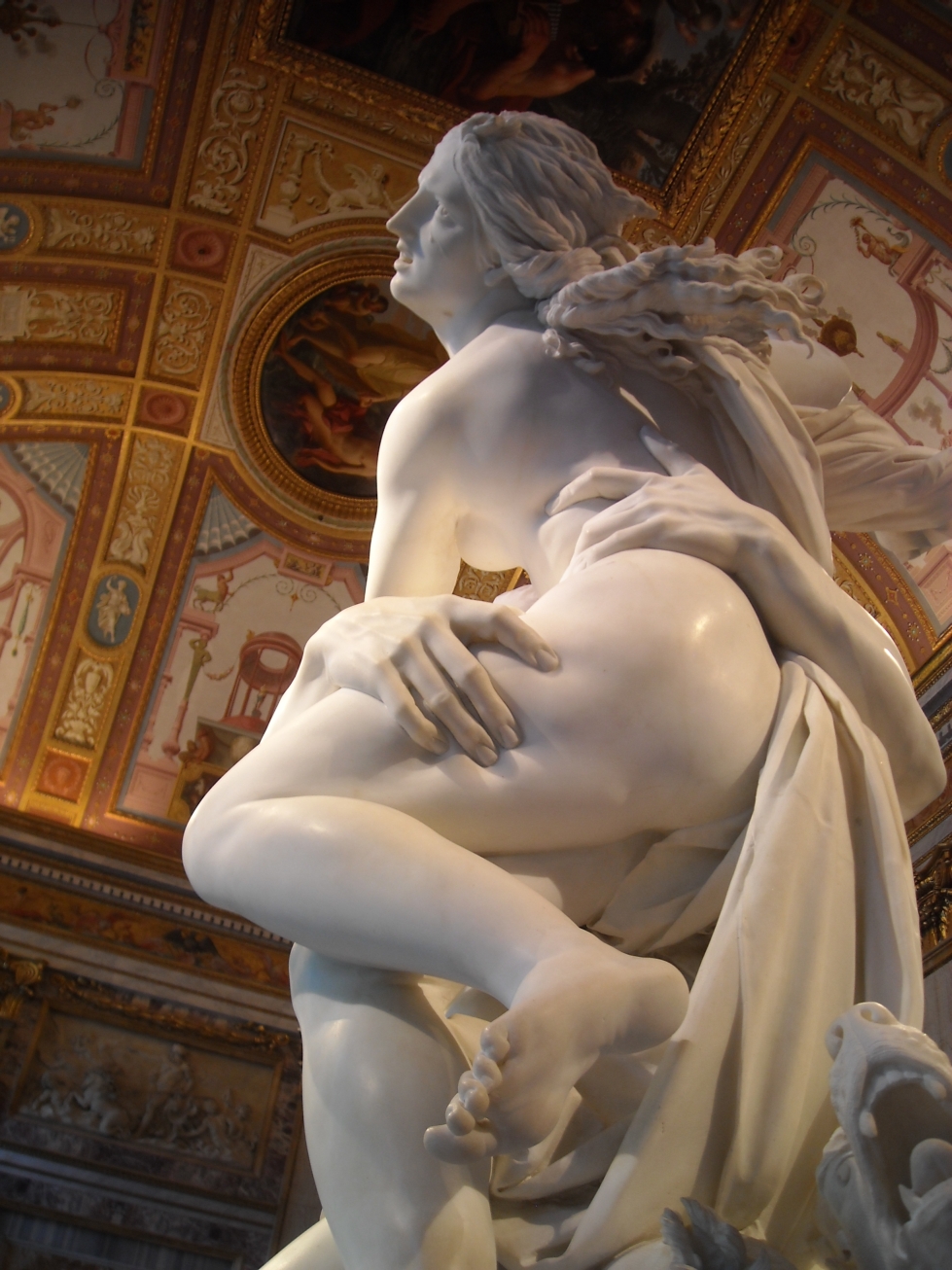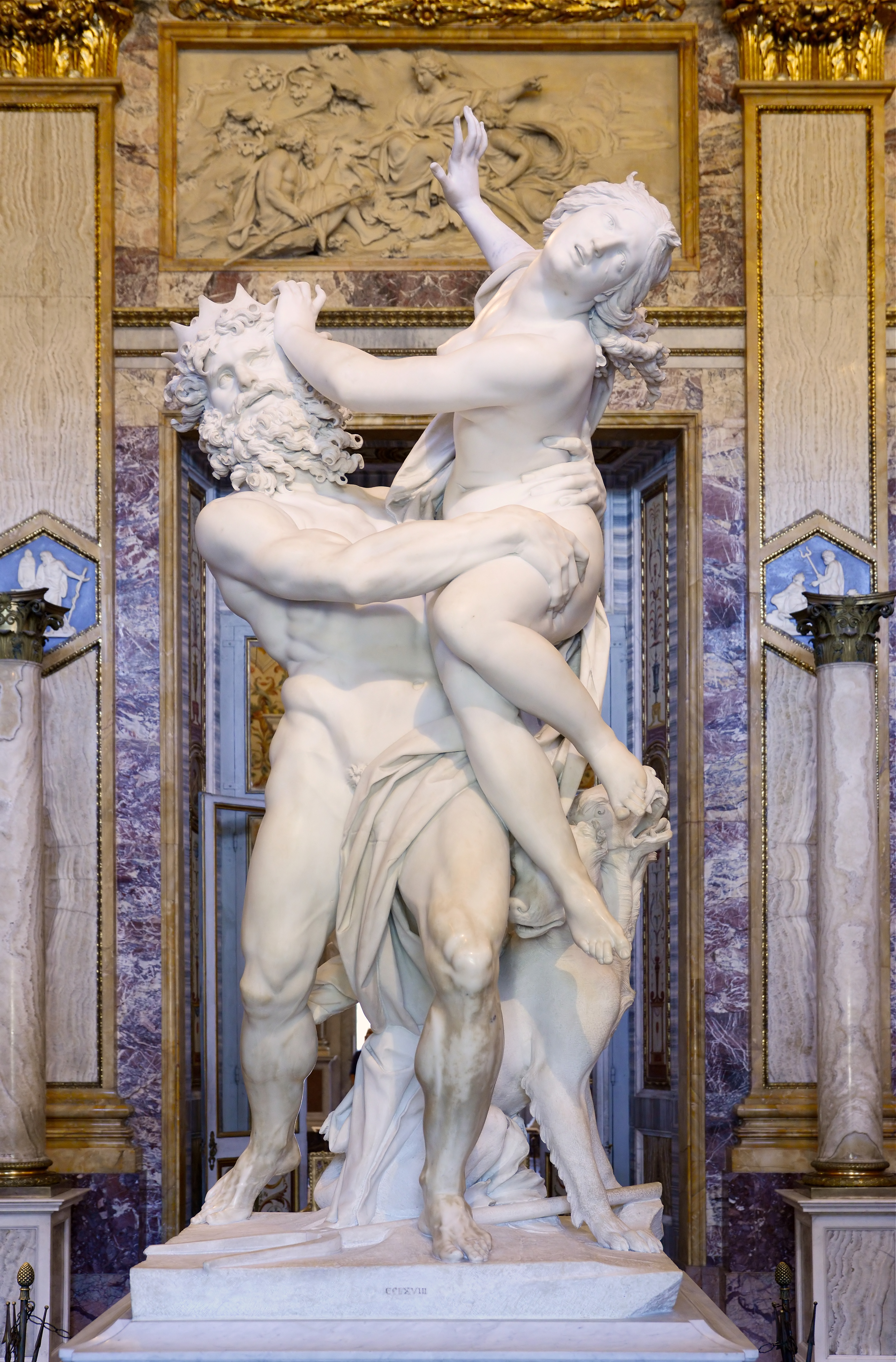Hades and Persephone, The Rape of Proserpina
the feet, and the ass.

Such eroticism, and exquisite detail.

Proserpina is Persephone, the Queen of the Underworld.
Persephone is the daughter of Zeus and the harvest goddess Demeter. She was abducted by Hades, the god-king of the underworld, and became his wife.
Persephone, Queen of the Underworld
In Greek mythology, Persephone (/pərˈsɛfəni/, per-SEH-fə-nee; Greek: Περσεφόνη), also called Kore (/ˈkɔəriː/; “the maiden”) or Cora,[n 1] is the daughter of Zeus and the harvest goddess Demeter, and is the queen of the underworld. Homer describes her as the formidable, venerable majestic princess of the underworld, who carries into effect the curses of men upon the souls of the dead. Persephone was married to Hades, the god-king of the underworld.[1] The myth of her abduction represents her function as the personification of vegetation, which shoots forth in spring and withdraws into the earth after harvest; hence, she is also associated with spring as well as the fertility of vegetation. Similar myths appear in the Orient, in the cults of male gods like Attis, Adonis and Osiris,[2] and in Minoan Crete.
Abduction of Persephone by Hades
Persephone used to live far away from the other gods, a goddess within Nature herself before the days of planting seeds and nurturing plants. In the Olympian telling, the gods Hermes and Apollo had wooed Persephone; but Demeter rejected all their gifts and hid her daughter away from the company of the Olympian gods.[72] The story of her abduction by Hades against her will is traditionally referred to as the Rape of Persephone. It is mentioned briefly in Hesiod's Theogony,[73] and told in considerable detail in the Homeric Hymn to Demeter. Zeus, it is said, permitted Hades, who was in love with the beautiful Persephone, to carry her off as her mother Demeter was not likely to allow her daughter to go down to Hades. Persephone was gathering flowers with the Oceanids along with Artemis and Athena—the Homeric Hymn says—in a field when Hades came to abduct her, bursting through a cleft in the earth.[74] Demeter, when she found her daughter had disappeared, searched for her all over the earth with Hecate's torches. In most versions she forbids the earth to produce, or she neglects the earth and in the depth of her despair she causes nothing to grow. Helios, the sun, who sees everything, eventually told Demeter what had happened and at length she discovered the place of her abode. Finally, Zeus, pressed by the cries of the hungry people and by the other deities who also heard their anguish, forced Hades to return Persephone.[75]
Hades indeed complied with the request, but first he tricked her, giving her some pomegranate seeds to eat. Persephone was released by Hermes, who had been sent to retrieve her, but because she had tasted food in the underworld, she was obliged to spend a third of each year (the winter months) there, and the remaining part of the year with the gods above.[76] With the later writers Ovid and Hyginus, Persephone's time in the underworld becomes half the year.[77]
〔from Persephone〕
See also: Art: The Rape of the Sabine Women